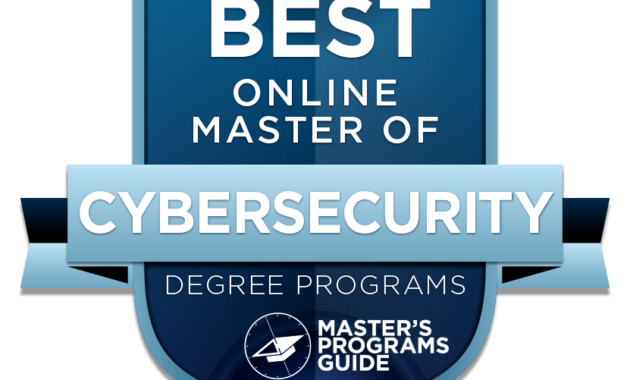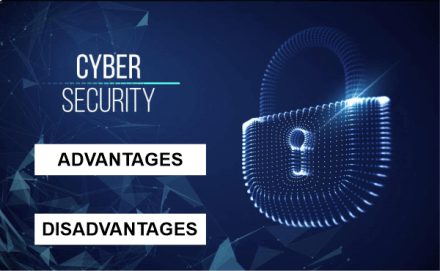Cyber Security Masters Online The demand for cybersecurity professionals is higher than ever, with businesses and governments prioritizing digital security. Pursuing a Cyber Security Master’s Online allows students to gain specialized knowledge while maintaining work-life balance. This guide covers top programs, costs, career opportunities, and essential details to help you choose the right online master’s program.
Why Choose an Online Cyber Security Masters Online Degree?

1. Flexibility and Convenience
Online programs allow students to study from anywhere, making them ideal for working professionals and international students.
2. Growing Industry Demand
With the rise in cyber threats, industries like finance, healthcare, and government require skilled cybersecurity experts.
3. Competitive Salaries and Career Growth
A master’s degree in cybersecurity can lead to high-paying jobs such as security analyst, penetration tester, and chief information security officer (CISO).
4. Accredited and Recognized Programs
Many top universities offer fully online cybersecurity master’s degrees that are accredited and globally recognized.
Best Online Cyber Security Master’s Programs

1. University of California, Berkeley – Master of Information and Cybersecurity
- Duration: 20 months
- Tuition: ~$80,000
- Key Features: Emphasis on risk management, cybersecurity law, and leadership.
2. University of Maryland Global Campus (UMGC) – MS in Cybersecurity Technology
- Duration: 2 years
- Tuition: $22,000 (in-state), $28,000 (out-of-state)
- Key Features: Hands-on labs, network security, and ethical hacking.
3. Harvard Extension School – Master’s in Cybersecurity
- Duration: 1.5 to 2 years
- Tuition: ~$35,000
- Key Features: Cloud security, data privacy, and cyber law.
4. New York University (NYU) – MS in Cybersecurity
- Duration: 24 months
- Tuition: $53,000
- Key Features: Focus on cryptography, security analytics, and software security.
5. Georgia Institute of Technology – Online Master’s in Cybersecurity
- Duration: 2-3 years
- Tuition: $9,900 (affordable option)
- Key Features: Specializations in policy, energy systems, and information security.
6. Pennsylvania State University (Penn State) – MS in Cybersecurity Analytics and Operations
- Duration: 2 years
- Tuition: ~$30,000
- Key Features: Security analytics, digital forensics, and risk management.
Cost of an Online Cyber Security Master’s Degree
The cost varies depending on the university, program length, and residency status. Here’s a general breakdown:
| University | Tuition (Approx.) | Duration |
|---|---|---|
| UC Berkeley | $80,000 | 20 months |
| UMGC | $22,000 – $28,000 | 2 years |
| Harvard Extension | $35,000 | 1.5 – 2 years |
| NYU | $53,000 | 2 years |
| Georgia Tech | $9,900 | 2-3 years |
| Penn State | $30,000 | 2 years |
Additional costs may include books, certification exams, and lab fees.
Admission Requirements for Online Cyber Security Master’s Programs

Each university has unique admission criteria, but common requirements include:
1. Bachelor’s Degree
A degree in computer science, IT, or a related field is often required.
2. Work Experience
Some programs prefer candidates with 2+ years of cybersecurity or IT experience.
3. Letters of Recommendation
Usually required from professors or employers.
4. Personal Statement
Applicants must submit an essay explaining their interest in cybersecurity.
5. GRE Scores (Optional)
Many programs have removed GRE requirements, but some may still require them.
Career Prospects After Completing a Cyber Security Master’s Online
A master’s degree in cybersecurity opens up a wide range of career opportunities with competitive salaries.
Top Cyber Security Careers and Salaries
| Job Role | Average Salary |
| Cybersecurity Analyst | $98,000 |
| Ethical Hacker | $105,000 |
| Security Engineer | $120,000 |
| Chief Information Security Officer (CISO) | $180,000+ |
| Cybersecurity Consultant | $110,000 |
| Digital Forensics Analyst | $95,000 |
Industries Hiring Cybersecurity Professionals
- Financial Services (banks, insurance companies)
- Healthcare (hospitals, biotech firms)
- Government Agencies (FBI, NSA, Homeland Security)
- Tech Companies (Google, Microsoft, Amazon)
- E-commerce & Retail (Amazon, Walmart, eBay)
Advantages of Studying Cyber Security Online

1. Self-Paced Learning
Many online programs allow students to study at their own pace.
2. Lower Costs Compared to On-Campus Programs
Online programs often have lower tuition fees and no relocation costs.
3. Access to Global Networking Opportunities
Students can interact with peers and professors worldwide.
4. Same Quality Education as On-Campus Programs
Many top universities offer identical coursework for online and on-campus students.
Disadvantages of Studying Cyber Security Online
1. Limited Hands-On Experience
- Cybersecurity requires practical skills, but online programs may lack physical lab access for hands-on training.
- Virtual labs and simulations can help, but they may not fully replicate real-world scenarios.
2. Lack of Networking Opportunities
- In-person programs allow students to build strong industry connections through events, career fairs, and professor interactions.
- Online students may miss out on face-to-face networking with peers and cybersecurity professionals.
3. Time Management Challenges
- Online learning requires self-discipline and time management skills.
- Without a structured classroom environment, students may struggle to stay on track.
4. Perceived Credibility Issues
- While many employers recognize accredited online degrees, some may still prefer traditional, in-person education.
- Researching program accreditation is crucial to ensure industry acceptance.
5. Technical Difficulties
- Students depend on stable internet connections and proper computer setups for coursework.
- Technical issues may disrupt learning, especially in cybersecurity courses requiring advanced software.
Also Read : What Is University Career Counseling And How Can It Help Students?
Conclusion
An online master’s in cybersecurity is an excellent investment for those looking to advance their careers in a growing and lucrative field. With flexible study options, affordable tuition, and strong job prospects, pursuing a cybersecurity master’s online can be a game-changer. When choosing a program, consider factors like accreditation, cost, and career opportunities to make the best decision.
FAQs
1. Is an online master’s in cybersecurity worth it?
Yes! Cybersecurity is a high-demand field with excellent job prospects and salaries.
2. Can I get a job with an online cybersecurity master’s degree?
Absolutely! Employers value accredited online degrees just as much as traditional ones.
3. How long does it take to complete an online cybersecurity master’s program?
Most programs take 1.5 to 3 years, depending on part-time or full-time study.
4. Do online cybersecurity master’s programs require coding experience?
Some programs require basic programming knowledge, but many offer introductory courses for beginners.
5. What certifications should I get along with a master’s degree?
Certifications like CISSP, CEH, CompTIA Security+, and CISM enhance job prospects and credibility.